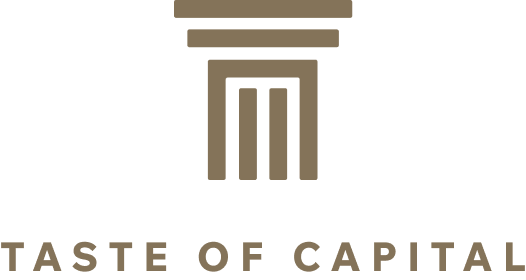Denmark’s government has lowered its 2025 economic growth forecast to 1.4% from a previous projection of 3%, citing weaker prospects for pharmaceutical giant Novo Nordisk and new tariffs on Danish exports to the United States.
The Ministry of Economy said in a statement on Friday that the downturn in expectations reflects both industry-specific challenges and external headwinds in trade.
“The pharmaceutical industry is increasingly challenged by competition in the markets for weight-loss products, which has dampened growth expectations in the industry,” the ministry said.
The downward revision follows a period when Denmark had outpaced much of Europe’s growth, thanks largely to Novo Nordisk, maker of blockbuster drugs Wegovy and Ozempic.
Tariffs on Danish goods imported into the United States, its largest export market, are also expected to further dampen growth.
Exports to the US fell significantly in the first half of 2025, reversing a surge in late 2024.
The ministry now projects exports will expand just 0.9% in 2025, a dramatic cut from its May forecast of 4.3%.
Still, it expects growth to rebound to 2.1% in 2026, supported by stronger household and government spending.
Source: Bloomberg
Novo’s rise and current struggles
Once Europe’s most valuable firm, Novo overtook LVMH in 2022 amid a boom in demand for weight-loss drugs.
Last year, Novo’s market capitalization reached $570 billion, exceeding the size of the Danish economy.
However, the company’s growth has been hitting a roadblock lately. Last month, it warned that its revenue growth this year would fall well short of earlier forecasts, blaming intensifying competition in the US market for the slowdown.
The company is facing stiff competition in the US majorly from Eli Lilly, maker of GLP-1 drugs like Mounjaro and Zepbound, while cheaper copycat versions of Novo’s drugs are also eating into its share.
It now expects sales to rise between 8 and 14% in 2025, with operating profit growth of 10 to 16%. That compares with a previous forecast of 16 to 24% sales growth.
Its share price has mirrored its struggles, falling sharply—more than 10% in 2024 and over 40% so far this year—reflecting investor concerns about intensifying competition from US rival Eli Lilly and the durability of the obesity drug market.
Its market cap stands at close to $250 billion.
The company’s sales remain strong, rising 67% year-on-year in the latest quarter; however long-term questions linger.
Source: Bloomberg
Novo Nordisk’s dominance drives growth but also risk
The rise of Novo Nordisk has transformed Denmark’s economic profile.
In 2023, sales of the company’s diabetes and obesity treatments accounted for nearly half of GDP growth, while the company’s hiring spree—32,000 new jobs since 2020—made it one of the country’s largest employers.
But this success has created vulnerabilities.
Novo Nordisk now represents an outsized share of Denmark’s exports, with pharmaceuticals contributing 6.7% of GDP.
“Lower growth in Novo means lower GDP growth in Denmark, it’s as simple as that,” Las Olsen, chief economist at Danske Bank A/S, Denmark’s largest lender has said.
The company’s rapid expansion has strained the country’s labor market, with small businesses, hospitals, and construction firms struggling to retain skilled workers.
According to St Andrews Economist, in Kalundborg, home to Novo’s largest production hub, small firms have been forced to shut down after losing employees to the drugmaker’s higher wages.
Lessons from Finland’s Nokia saga
The outsized role of Novo Nordisk in Denmark’s economy has sparked concerns about over-reliance on a single company, drawing parallels to Finland’s experience with Nokia.
In the early 2000s, Nokia accounted for nearly one-fifth of Finnish exports and dominated the global mobile phone market with iconic devices like the 3310.
Yet its failure to adapt to the smartphone revolution—slow adoption of touchscreens, reliance on outdated software, and internal complacency—led to a steep decline.
Share of Nokia in Finland’s GDP and exports, Source: Theseus
By 2014, Nokia’s mobile unit had been sold, leaving a cautionary tale about the dangers of economic concentration and disruption.
Observers warn Denmark faces similar risks if Novo Nordisk loses ground in the obesity drug race.
Denmark’s Prime Minister Mette Frederiksen acknowledged in an interview last year that regulators must monitor risks tied to Novo’s dominance, but dismissed parallels with Nokia, stressing that the country’s economic strengths extend well beyond pharmaceuticals.
The company’s sales remain strong, rising 67% year-on-year in the latest quarter, but long-term questions linger.
Rivals like Eli Lilly are capturing market share, while US political pressure for lower drug prices threatens profitability.
A resilient economy, but questions remain
Denmark still retains solid fundamentals.
Public finances remain strong, the country runs a large savings surplus, and its economy is diversified across sectors like shipping (Maersk), brewing (Carlsberg), toys (Lego), and renewable energy (Vestas).
But the reliance on one pharmaceutical company for such a large slice of employment, exports, and GDP growth has left the economy more exposed than in previous years.
Olsen has however pointed out that Novo continues to expand, unlike Nokia, which suffered a sharp decline.
He added that even if Novo were to face a comparable setback, Denmark’s economy is now far better equipped to withstand the impact.
Whether Denmark can manage this transition without falling into the same trap that felled Nokia remains to be seen.
For now, the country faces a delicate balancing act: safeguarding the gains from Novo Nordisk’s success while ensuring the broader economy is not overly dependent on one corporate giant.
The post Denmark cuts growth forecast as Novo slowdown sparks reliance debate appeared first on Invezz
